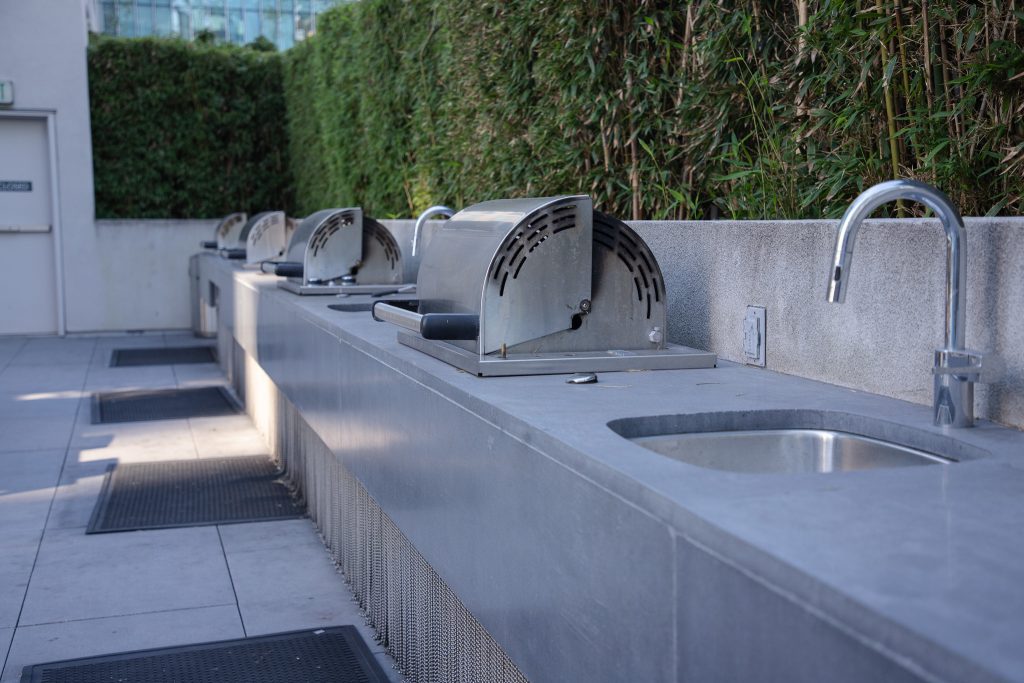Corporate Housing vs. Housing Stipends: Which Is Better for Your Internship Programs?
Internship programs are an excellent way for companies to attract and develop future talent. But ensuring interns feel supported, engaged and comfortable plays a vital role in the success of your program. One key decision companies face is how to provide housing—through a stipend or a structured corporate housing program. While stipends offer flexibility for interns, they can lead to inconsistent experiences and administrative headaches. On the other hand, corporate housing provides consistency, convenience and professional support.
In this blog, we’ll compare the two housing options and explain why corporate housing with a managed service provider like Synergy often delivers the best results for both companies and interns.
Why Housing Matters for Internship Engagement

Housing directly impacts an intern’s engagement, satisfaction and overall experience. Whether you provide fully furnished corporate housing or a housing stipend, your choice can shape how interns interact, perform and experience their internship with your organization.
Below, we break down the pros and cons of each housing option—and highlight best practices to help your interns thrive.
Common Stipend Use Cases
Some companies offer interns a stipend to secure their own housing. While this gives interns more freedom, it often leads to trade-offs and those choices aren’t always in their best interest.
Airbnb & Independent Short-Term Rentals
- Pros: Variety of locations, price points and perceived flexibility.
- Cons: Inconsistent quality, safety concerns, cancellation risks.
Hotels
- Pros: Reliable services, daily housekeeping, central locations.
- Cons: Limited space, lack of home-like amenities, high long-term costs.
Peer-to-Peer Housing (Craigslist, Facebook Marketplace, etc.)
- Pros: Budget flexibility and location variety.
- Cons: High risk of scams, no vetting, inconsistent standards.
Corporate Housing (Paid by the Intern)
- Pros: Fully furnished apartments, utilities included, professional support.
- Cons: Higher upfront costs for interns, less flexibility in terms.
Stipend Concerns
For Individuals
The drive to save money can lead interns to choose subpar accommodations, resulting in unreliable Wi-Fi, unsafe neighborhoods, or difficult lease negotiations.
For Employers
Leaving interns to source their own housing can result in logistical headaches and safety concerns. A structured housing program through a managed provider ensures quality, mitigates risk and enhances intern satisfaction.
Why Corporate Housing Is a Smart Investment
When compared to self-managed options, corporate housing delivers distinct advantages, particularly for early-career professionals and corporate administrators responsible for intern housing.

1. Keeping Your Interns Together and Close to the Office
Corporate housing allows companies to house interns closer together, often in the same apartment community. This setup creates a dorm-like environment, which fosters engagement and collaboration—elements that are crucial for young professionals transitioning into corporate life.
By selecting housing close to the office or worksite, interns benefit from shorter commutes, improved work-life balance and ease of coordination for work-related events. Additionally, grouping interns together helps them build strong professional relationships, encourages networking and boosts morale—an aspect that’s difficult to achieve when interns are spread across different accommodations with a housing stipend.
2. Utilizing the Corporate Housing Property for Social Events
Many corporate housing properties feature fitness centers, swimming pools, rooftop decks, lounges, BBQ areas and common rooms—perfect venues for hosting social gatherings. These areas ideal for:
- Welcome Mixers – A great way for interns to meet each other at the start of the program.
- Networking Nights – Invite mentors, managers and fellow employees to interact with interns.
- Team-Building Activities – Fun events like game nights, cooking challenges, or trivia nights encourage teamwork and camaraderie.
- Regular Social Events – Instead of just one kickoff event, ongoing activities foster engagement throughout the internship.






These spaces help create a memorable and engaging intern experience. Partnering with a corporate housing provider makes reserving common areas simple—something much harder to coordinate when interns are scattered across the city.
3. Consistency and Control
Corporate housing ensures standardized accommodations for every intern. This means:

- Fully furnished apartments with comfortable living spaces and work-from-home setups.
- Reliable WiFi and utilities, eliminating issues interns may face with independent rentals.
- Pre-negotiated lease terms that prevent unexpected move-out hassles or fluctuating costs.
- A single point of contact for housing needs, instead of interns managing unpredictable landlords or short-term rental hosts.
With a stipend, interns may end up scattered throughout a city, each dealing with different landlords, lease agreements and service levels. In contrast, corporate housing provides an easy and controlled experience that reduces administrative burden for HR teams and ensures interns feel supported and valued.
4. Crisis Management and Duty of Care
A critical downside of self-managed housing is the lack of crisis management support, leaving interns to navigate unexpected challenges on their own. In contrast, corporate housing offers dedicated assistance to handle a range of urgent situations, such as:

- Last-minute relocations or extended stays – If an intern’s project timeline changes or they need to relocate unexpectedly, corporate housing providers can quickly arrange suitable accommodations.
- Housing emergencies – Issues like flooding, fires, or major maintenance problems can leave interns stranded. With corporate housing, professional teams are on call to resolve these situations and provide alternative housing if needed.
- Natural disasters or unforeseen disruptions – Events like extreme weather, power outages, or city-wide disruptions can severely impact housing. Corporate housing providers have contingency plans to keep interns safe and secure.
With professional management providers like Synergy, interns have access to immediate support, ensuring their well-being, minimizing disruptions and allowing them to stay focused on their work.
Keeping Interns Engaged—No Matter the Housing Option
Whether you offer a stipend or have a professionally managed program, engagement is key. If your company chooses stipends, consider recommending pre-vetted properties from a trusted corporate housing provider to maintain quality and safety.
Here are strategies to keep interns connected and engaged:

- Recommend Trusted Housing Options – Even with a stipend, guiding interns toward pre-vetted buildings from a corporate housing provider ensures they have safe, quality accommodations with professional management.
- Encourage Interns to Live Near Each Other – Suggesting housing in the same building or neighborhood fosters a stronger sense of community and makes it easier for them to connect outside of work.
- Host Regular Social Events – Plan gatherings at the office or accessible locations to help interns bond and feel more included in the company culture.
- Organize Structured Activities – From networking dinners to fun outings like escape rooms or bowling nights, planned events encourage team building and camaraderie.
- Provide Transportation Guidance – Help interns navigate their commute with information on public transit, shuttle services, or bike-friendly routes to make daily travel easier.
By offering housing recommendations and fostering a strong social environment, you can create an engaging, rewarding intern experience—regardless of the housing model your company chooses.
Real-World Success Stories
One technology company transitioned from a stipend-based intern program to a fully managed corporate housing solution and saw a significant boost in intern engagement. Interns were more social, more productive and there was a higher conversion of interns to full-time employees. A structured housing program eliminated logistical headaches and improved the overall experience for both interns and administrators.
Planning for the Future
Housing plays a critical role in intern satisfaction, engagement and productivity. Program management through a provider like Synergy offers a turnkey solution, ensuring a superior experience for both interns and employers.





